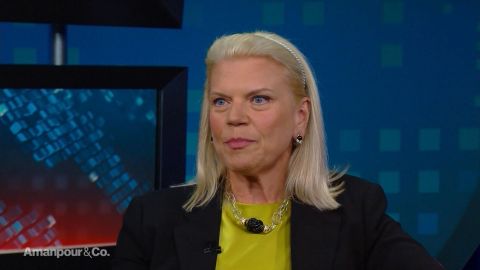Read Transcript EXPAND
CHRISTIANE AMANPOUR: So, you call your book “Every Day is Extra,” why?
JOHN KERRY: Because it’s a philosophy that many of the people who came back — many of my friends and the guys on my votes have often used the term, remembering those who didn’t come back, that because we were lucky, because any of us could have been killed on any given day but weren’t. We’re very lucky. I was lightly wounded, and I was lucky. I actually was mocked by the Republican party because my wounds were light and I didn’t control what happened. But it was an amazing period of time. But the fact is that we were lucky, all of us, everybody who came home.
And I write about how, for all of us, it was a motivation to lead a life of purpose, to remember the legacy of those who didn’t come home, to serve and honor them by virtue of trying to make our country better and stronger, which is what they fought for. They were all patriots, all patriots.
And as John McCain and I talked many times when we became friends and worked together to try to resolve the issue of Vietnam, we talked about how we — you know, we came from different places but we both understand the ways in which the war had torn the country apart. And we both went for pretty much similar reasons of service to country, sense of duty, we were the children of the greatest generation, of parents who left us with a very strong sense of responsibility and service.
AMANPOUR: You wrote very movingly about John McCain when he died earlier, a few weeks ago, and you spoke about how you both stood in his — in the cell where he was kept as —
KERRY: In his prison cell, yes.
AMANPOUR: — POW in Hanoi.
KERRY: Remarkable moment.
AMANPOUR: Yes. It must have been. Just tell me a little bit about that. But also, it’s almost quaint to think that there was, at that time, a relationship between two major senators of opposing political parties to actually work together and start the restoration of American ties with Vietnam.
KERRY: Well, Christiane, as you know, in fact, there were lots of relationships like that by people in the Senate, Ted Kennedy, Orrin Hatch. I mean, I could run, you know, a lot —
AMANPOUR: But it’s a generation.
KERRY: It’s a generation, and it changed. And it began to change in the 1990s, partly with the sort of Gingrich Revolution and we saw people come over from the House who are more willing to be, you know, less forgiving, adamant. There was an orthodoxy. The orthodoxy was pushed on everybody.
And the Senate lost something in that, the Congress lost something.
And I regret it, because our country desperately needs to come back to a place where the Senate does what it was designed to do. It is the place where you should slow things down, it’s the place where you should work collegiately, it’s the place where day-to-day politics are not supposed to prevent the doing of the business, and it has.
About This Episode EXPAND
Christiane Amanpour interviews Billie Jean King, former world number 1-ranked tennis player and founder of the Women’s Tennis Association; and John Kerry, former Secretary of State. Walter Isaacson interviews Ginni Romety, CEO of IBM.
LEARN MORE


